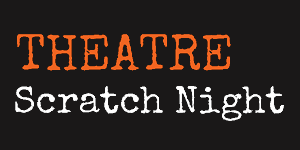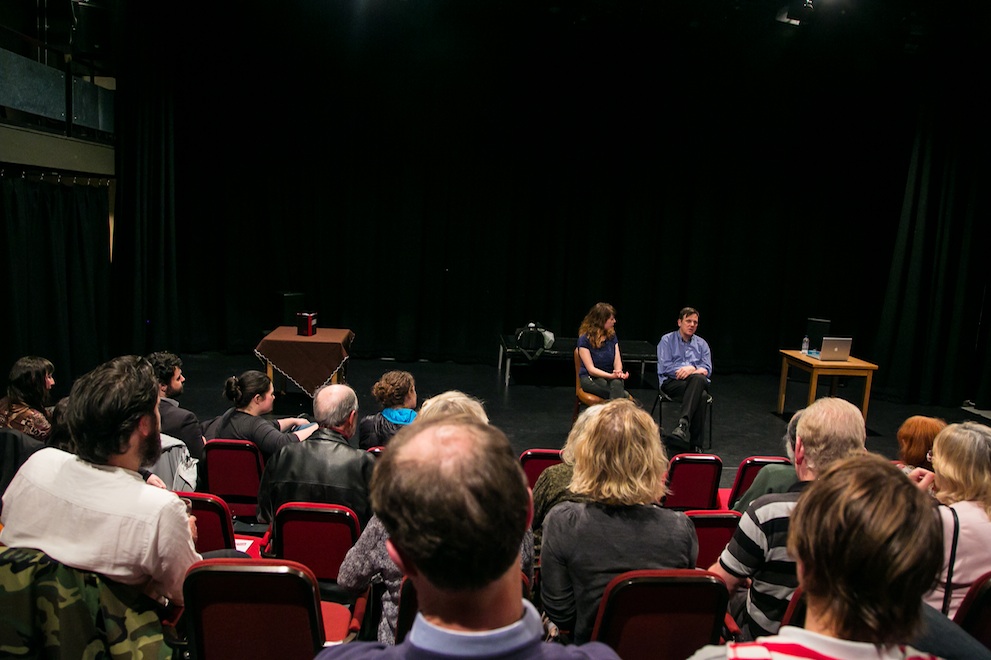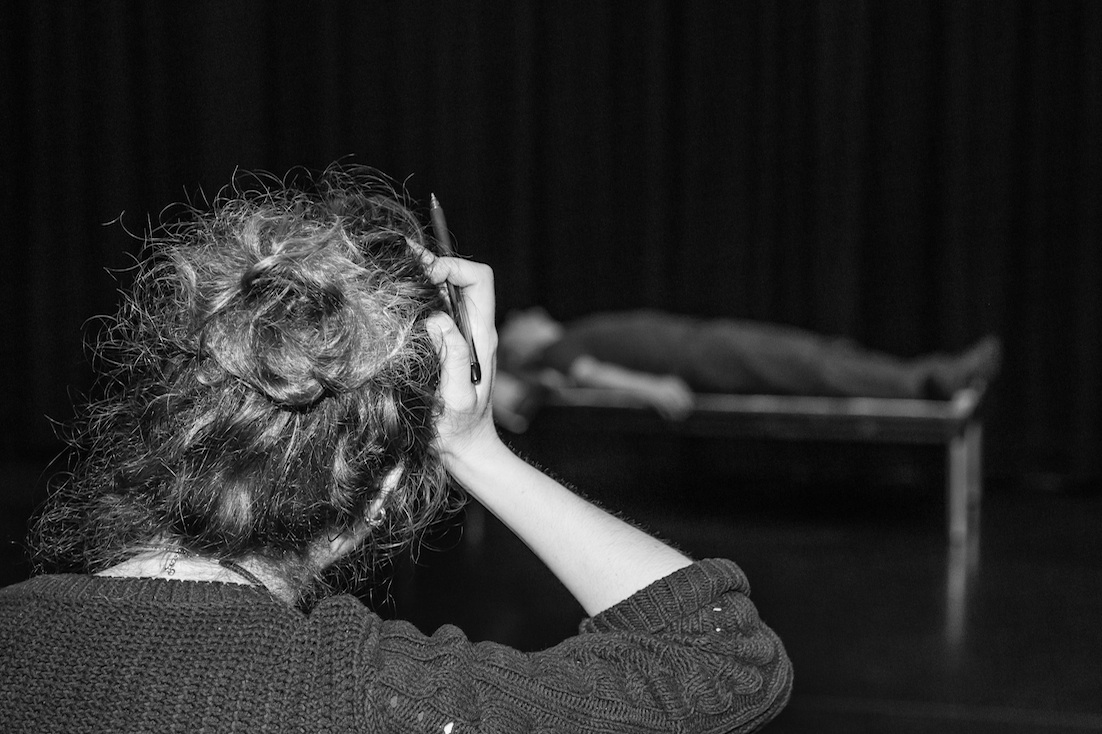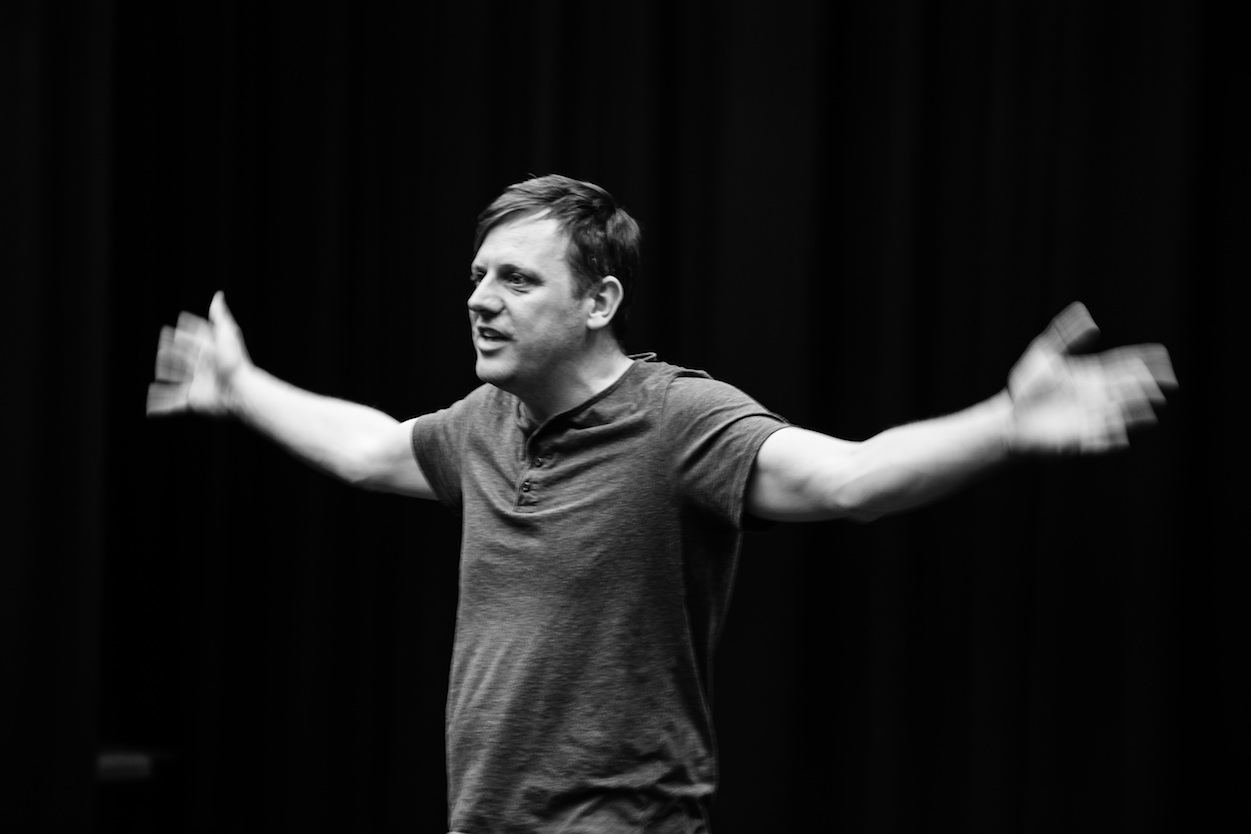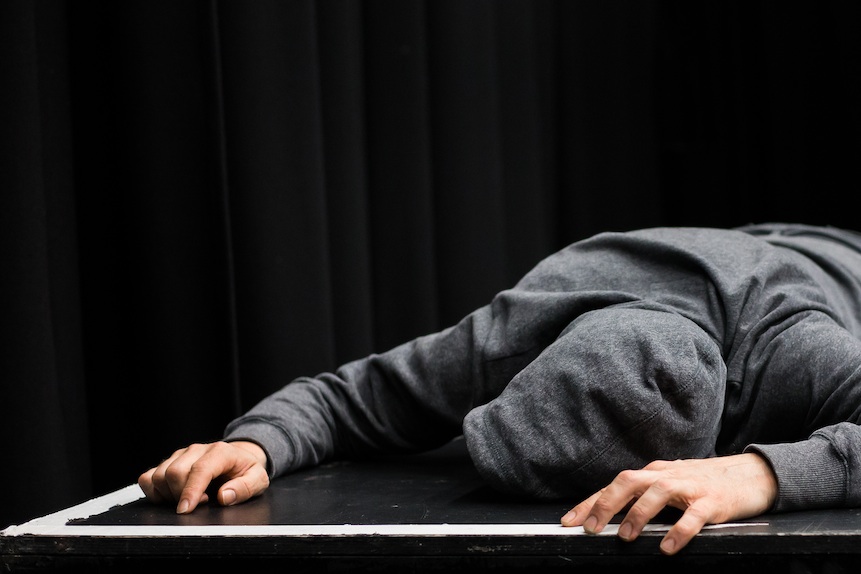Thoughts after TES during the post-show discussion
Written and Performed by Steve Larkin
23rd May 2014, Arts at the Old Fire Station
1. Do you think it helps you know Tess of the D’Urbervilles or is it just icing on the cake?
STEVE: Have you read Tess of the D’Urbervilles?
I think so in school and I’ve seen it on TV and I have a general idea of the story
STEVE: Well I don’t know because I have read it so I want to know – has anybody not read it? And what were your thoughts on the show?
2. I haven’t and my context comes from the flip side of that and I was wondering how much of it was Tess and how much was Steve?
STEVE: All Tess. Any creations/ similarities are coincidental.
3. Would you say its like West Side Story and Romeo and Juliet in that it adds an extra element to the story but its not necessary to have read it?
I have read Tess. I didn’t feel like I was at an advantage. If anything I felt that it spoilt it and I had forgotten that Tess dies at the beginning and felt like Hey you told me!
STEVE: Right I never read Romeo and Juliet but I did see West Side Story and enjoyed it.
4. What did inspire you about Tess?
STEVE: It’s my favourite novel. It’s a beautiful love story and pertinent now – we are on the cusp of change, as with the change from agriculture to the industrial revolution. With the right wing rhetoric around the big society and by the savage cuts to public services and the just CRUDE approach that the educationalist minister is pushing forward and the loss of stake holder intervention in education so all these things are important and they root out of Tess of the D’Urbervilles for me. And there’s another point connected to that that I forgot……………
5. This is a Tess related question as another Tess fan about why you chose to take the elements that you did from it and didn’t take other elements, as I was enjoying spotting things like the stone circle….
STEVE: OK the resonance – this is a point that relates to your question as well- and the reason Tess of the D’Urbervilles as a story out of all the novels that examine certain things, the one thing to me is the name isn’t it, the name D’Urberfield. Throughout my life being a poet and called Larkin and the question “ any relation?“ I was just trying to find more ways to deflect the question, as I don’t want people to necessarily associate me with Philip Larkin as lots of people hate him for being a right wing bigot and misogynist; not a look I’m going for. And I am – some of the things I say are just me – and my spoken word manifesto. I believe in the value of spoken word. I think poetry or literature took the wrong turn after the Middle Ages! As soon as the printing press came out and we had this temporary distraction of the written word! And now we’re going back to the advantages and opportunities of the spoken word. So elements there that resonates with me, having that heritage thing, having that name and the potential lineage.
So what elements did I chose to keep. So there was so much in there I wanted to map and echo, and I wanted either an equivalent or a copy. The characters had to be the same and the plot had to be the same.
The main character with it being me, had to be male, and when I told people I was doing Tess of the D’Urbervilles reinvented as a teenage boy – one person said ‘At Last – a male voice! “
I was thinking of having that on the publicity.
It’s a pity cos the original is the tale of the subjugation of women, and how they in that particular time period had no power. Obviously there have been slight improvements but not good enough improvements so the story from the women’s perspective is still vital but I’m not here to represent … I’m not every woman er Its not all in me – I do masculine things.
6. Slightly an inside question as I met you at the beginning of this process, but one of the things you wanted to do was to talk about spoken word and the passion for spoken word and you wanted to move away from purely being seen as and seeing yourself as a ‘spoken word poet’, into something that had a more theatrical feel to it, and I’m wondering whether you feel you’ve made that….what that journey was like really,, how different this is from what you’ve done for years and years as a spoken word poet.
STEVE: It’s so different; I mean obviously I’m retaining poetry in there and the focus. The thing that is the bone of the piece is the Post -Colonial Global Blues, as far as I see it. That’s like that little bit in 1984, you’ve got George Orwell’s political doctrine, the whole story is just the fleshing out of it. So the whole theatre show is there just to strengthen and move this poem of the Post-Colonial Global Blues, which says it all. But …
7. Did you write that before you had the idea for the show?
STEVE: No I wrote it when the idea of the show was conceived. Kate Tempest told me about a story a tory teller told her,
“ A guy moves to a town and he’s going and he’s chatting to everyone or trying to chat to people in the town and nobody wanted to know. Nobody talks to him. One day goes by, nobody has stopped for him at all. A whole week goes by, no-one will talk to him, he doesn’t know what’s going on. The week after another bloke comes and he’s having a good time chatting to new people …everybody’s chatting to him.
Everyone wants to know what he’s got to say. So the first bloke goes to the second bloke he goes
‘I’ve been here a week trying to talk to people in this town and no – one will talk to me. What’s going on?’
And he says; ‘Ah, problem is – you are truth and I am story. People can’t handle truth. But people always want story”
That’s a really good little story I think – I understand that. So you know what do they say, if you don’t want the truth – don’t call a poet. It is a kind of brutal mentalise, a raw mentalise. The sort of stuff that I like and the sort of stuff that I value around on the poetry scene is er you know………Anarcho cyndiclist ranters ! I love anarcho cyndiclist ranters That’s where I am. I have pinpointed my political views as being an anarcho – primitivist. I like others of a similar ilk and I realize that is a commercial disaster, and nobody wants the truth shouting at them so I still have some zest and passion to have some sort of satirical content to my work…so I need it to be there…and I know I could go to an open mic in middle England, start with the Post Colonial Global Blues and it would turn people off.
Last night I did that here at the funding network gig, with Neil Spokes here, and the funding network has people in from all sorts of… people who give – charities do a pitch and they all give them money – its a great thing – and I thought ‘ Oh Good! An ethical crowd! An ethical Crowd! I will do the Post Colonial Global Blues’ And I totally split the audience in two. Because yes, there were people there bidding for the money, who were going for it, who were thinking about social change in that way and there were some people who still value philanthropy who are from a completely different world view from me, and that was a collision I thought, last night. So yes you need to contextualize and you need soften everything that you’ve got involved.
8. Hello – can I ask about your acting, I was dazzled by you doing it! All those parts and all memorized and no cues form other people to help you. How on earth did you do it?
STEVE: This Person (points to Lizzy); this person ( points to Chris) and Josh. They’ve all been fantastic in helping me.
LIZZY: You had a lot learned before we were working with you.
STEVE: YEH
Caroline: It’s a huge memory feat isn’t it,
LIZZY: But actually Caroline – he wasn’t working from a script. We made him write a script – he had it in his head. We needed the script!
STEVE: A bit of background into how the show was developed from about a year ago and how it was developed since then and the difficulties of everyone who’s had to work with me. So I started writing it as a script, the dialogue doesn’t really work. It’s clunky, when I do it in that way, it’s unnatural, and I’ve got a deadline, I’ve gone for a festival in Canada – the Victoria Fringe at the end of August, start of September last year. And I’m going out on a tour and I’m going out in July and I’ve only got this first 10 minutes done, and it’s like arggh – how am I going to get this together in time, and I originally wanted this sort of production with whistles and bells and cues and the like. It was just never going to happen in that space while I’m on tour doing other shows. And then Martin Dochery, who is a New york based storyteller , and I got his advice and his help and he give me some direction – he devises all his pieces spoken, he never puts pen to paper –everything is just spoken – locks himself in a basement where no one can hear and he repeats it over and over again. He produces a show, which is word for word the same for an hour or more. So I thought “That’s me only chance of doing it in time”. And it was faster writing and it was better writing and it was natural as a story. It was fluid. And then I’ve come to this process working with Lizzy and with Chris in producing this and then its difficult, really difficult for them, cos they haven’t got the usual mechanisms so they’ve worked wonders with me under conditions that would be outlawed by Europe. And Yeh there is a collision between the two courses. In ter s of acting I’m really delighted and really pleased that you said that the difference between characters and everything was good. Cos I’ve never really acted. I did a show called “Nonce” where I did monologues of people but there wasn’t a great deal of acting in there was there……
AUDIENCE MEMBER: It was still very clear who the characters were though and it was very well done – but this is a lot more dramatic compared to that.
STEVE: And there was no interaction between characters. Maybe one scene between the professor and me. And I’m me in that as well, I can act me quite well. I look quite like me, which is a bonus.
So Lizzy worked for more hours than she was scheduled for to help me develop the dramatic side of things. My character, my teacher character, as I’d been doing it, I was never comfortable with her when I was doing her before, she was very tight lipped, she’s more like this “course me and you” and Lizzy says she’s about 80 years old, that’s not going to work, so she helped me a lot in finding the drive of the intention.
I spent a whole day in the studio in a dress to try to er….
LIZZY: I Wasn’t there that day!
STEVE: I was there on me own and thankfully nobody came in to disturb me in this time – just to get used to being her and talking like her.
AUDIENCE: do you record it or not?
STEVE: NO –I did a bit when I was doing spoken word but I never listen back to it.
AUDIENCE: Is it word for word or do you ad lib – are you sticking to something very accurate?
STEVE: I’m not – it’s about 75% accurate.
LIZZY: Its getting more and more faithful– but it’s finding… every time you do it you sort of find the right way of saying something.
AUDIENCE: Well I thought it was particularly good cos you were switching from person to person and that enables you to ad lib within that person and then that person.
STEVE; There were new bits tonight. There were new bits when I did it in Southampton. I er “sometimes I hate myself” that was a new bit it suddenly struck me – of course!
9. A BLOKE: I must say I don’t know anything about Tess at all. I asked Sue – Sue’s my partner here, about Tess of the D’Urbervilles and she told me the story – it turned out to be Far From the Madding Crowd!
Sue – I was going to Confess!
SAME BLOKE: So I thought yeh that’s it! That’s it! Every now and then I thought that’s it! The point of my story is despite all that I really enjoyed it. I heard the poem last night – I thought your poem was much better the second time through.
STEVE: In context with the story?
BLOKE: In context, but also you could understand the words much more. You were fast, you said them very fast.
STEVE: Cos I was nervous – I got a few looks from the audience of people going ‘ what the hell..’
10. I was at that meeting last night as well and I’m not very accustomed to SLAM. I don’t know what SLAM is. I’m not very accustomed to it, and I like to take something in and sort of savour the flavor of it and I didn’t have enough time, and so when I heard it this evening I was able to take it in, and it made me think I wish if that’s the sort of centre of it, I wish that your characters could insert little flavours of those actual lines throughout the play and then culminate in it.
I know that isn’t properly SLAM, but just actually part of that poem that go in: they’re on the radio or he’s just thought of something or he’s in prison and he comes out with that line and then something else and by the time you get it at the end – for those of us who are slightly older, which lots of people were last night, or aren’t used to that kind of delivery, sort of some of the things have found a piece of space and when you come to the thing at the end you get the flavor of it because you can manage it.
STEVE: That’s always the intention I was looking at. There’s a bit of that going on, cos you’ve got Subterranean Homesick Blues being the song.
In the BBC Mini series there will certainly be a lot more of that! Some of the audio cues that we had to get rid of were apposite to news stories that were going on at the time. The bit of Jeremy Kyle that I’ve got that I sadly talk over, he goes, “ I want to meet this DON JUAN” at the start of that interview. ‘That’s great! I can’t believe I found that!’ That’s awesome. And I want to kind of have a bit more of the character of Byron in there. I tried and failed a bit. So the idea of him getting run over – the idea was that he would then walk with a limp. So that was a nod to the character of Byron
11. I really like that fact that before and after the interval it’s a very different pace. I thought the opposite of what the other lady said just then. In some ways I like the fact it hits you in the face when you do that at the end – it’s a very different pace in the second half, and its nice its like watching a play in the first half and watching a poetry slam in the second half.
12. Steve, why didn’t you clean your shoes?
13. Or iron your shirt!
STEVE: because he lives in a house in a hole called Holbeck. That’s why. I took a lot of time putting the mud of a particular flavor on these shoes to make them look authentic to a shit hole. I want to make it clear I didn’t just shove them on this morning as an after thought. No, no a lot of time and effort has gone into making these shoes dirty.
14. Why are you choosing to point yourself at Canada to launch this?
STEVE: Do you know….its a frustration of mine. I’ve been going out to Canada to do the fringe festivals for coming up to ten years and they are lucrative they have odd wind in Canada. I was working out how many people in Vancouver came to see NONCE and how many tickets are available tonight and how much they pay – on my own fucking patch. And yeh its financial thing but its frustrating because I go over to Canada and they’re all very nice, they’re extremely nice in Canada, they are overtly polite – the joke is the Canadian diary entry starts with “ Dear Diary so sorry to trouble you” – they’re that polite and that nice , but erm……..this show’s for Britain – its about Britain.
AUDIENCE BLOKE; Does it worry you that they won’t get the references?
STEVE: Yeh. Loads. And I go over there and other people write shows that are tailored towards them and those aren’t my concern. This is why I went for this opportunity when it arose with UnderConstruction Theatre Company for this residency and I really want to move things onto the next level here, cos you get nowhere. You’ ve got so many people who are on this island who are maybe a step on who have got a bit of a reputation and are getting shows in theatres here. And I got a bit of a tour together for Nonce last year – but with a ton of work and I don’t want to go to Canada, they are all very nice but I’d rather spend a summer in my garden and be going to Manchester Leeds and Newcastle and Liverpool and wherever on a train in a day you know or er ….
AUDIENCE: Or EDINBURGH
STEVE: oh no, Edinburgh is just a er, a meat market. But you’d lose your money – you pay to play. I need to do that and get seen in a decent venue and make money – but its’ such a heavy drinking schedule, if I can cope with that for another summer – I don’t think I can.
JEREMY: Lizzy can you say something about Scratch?
LIZZY: Yes I think that was quite a nice note to nearly finish on in a way. This is the first Scratch Residency, so Steve’s had two weeks working with a small team and it came out of the Theatre Scratch night which is something I launched two years ago, on a Tuesday evening and its open to theatre artists in Oxford County and the South East to come and show work in front of an audience and get feedback before it goes on to hopefully be developed and hopefully it’s the start of something. But I began to feel that OK this is a really good night but there needs to be another level, another chance to develop work further, because once you’ve shown it in front of an audience, its gone well – you want to develop it further, Its really hard if you’ve not got any space to do that in. Its all about space really. So that was the idea, but hopefully it’s the first of an annual thing – that’s what I’d really like.
STEVE: I’m a massive advocate of this thing. You can’t develop something until you’ve got initial ideas being approved, shaped and directed by a number of different brains. So yeah if you’ve got any ideas and you want to try them out – the Scratch night is the night.
And amazingly people pay a fiver to see your half-baked idea. So be one of those people as well – its very much appreciated.
LIZZY: And the next one is next month – June 17th. And its part of Tuesdays at the Old Fire Station, which includes a dance scratch a comedy scratch and Steve’s Hammer and Tongue night:
STEVE: The Slam Final. Oxford Slam Final is on 10th June. And the winner of that will go through to the national slam final at the Albert Hall on the 21st June.
Audience OOOOOOOOOOOO
LIZZY: And Short Stories Aloud, Playground, Meeting Points. There’s Loads going on here!
STEVE: It’s become the centre of the Universe here. It’s such a massively valuable thing to work with this team and these people and this space.
By Jude Thorp
